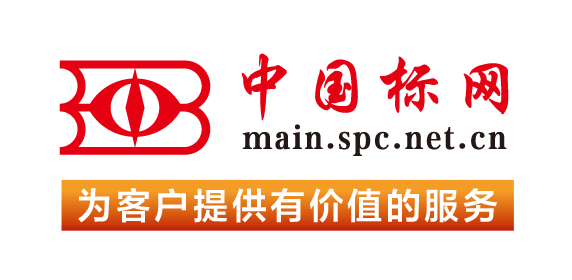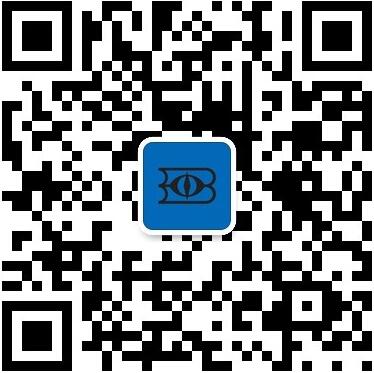- 您的位置:
- 中国标准在线服务网 >>
- 全部标准分类 >>
- 国外标准 >>
- ASTM >>
- ASTM E2659-18 Standard Practice for Certificate Programs
【国外标准】 Standard Practice for Certificate Programs
本网站 发布时间:
2024-02-28
开通会员免费在线看70000余条国内标准,赠送文本下载次数,单本最低仅合13.3元!还可享标准出版进度查询、定制跟踪推送、标准查新等超多特权!
查看详情>>
适用范围:
4.1 Certificate programs are typically offered by community colleges and universities, government agencies, employers, independent for-profit training organizations, and professional and trade associations. While quality guidelines do exist for continuing education and training providers in general (for example, ANSI/IACET 1-2013) and for entities offering personnel certification programs (for example, ANSI/ISO/IEC 17024:2012), currently, no quality guidelines exist specifically to aid entities offering certificate programs. This practice aims to change that and has been developed to:4.1.1 Provide certificate program developers and certificate issuers guidelines for quality program development and administration;4.1.2 Form the foundation for a recognition or accreditation system, or both, that enable consumers, employers, government agencies, and others who rely upon a skilled workforce to distinguish between qualified workers and those with fraudulent or less-than-quality credentials;4.1.3 Assist stakeholders in differentiating between certificate programs from personnel certification; and4.1.4 Assist stakeholders in differentiating certificate programs from other programs that confer certificates, including but not limited to certificates of attendance or certificates of participation.4.2 Currently, it is challenging to distinguish a certificate earned through the focused learning and assessment offered through a certificate program from one granted through other means. That a certificate is issued is not a distinguishing factor. The word“ certificate” is used broadly as a document awarded to designate the attainment or completion of something. An individual might receive a certificate from an education or training provider as verification of attendance at a learning event (often called a certificate of attendance) or receive a certificate as verification of active participation in a learning event’s learning experiences (often called a certificate of participation). The distribution of a certificate, however, does not indicate that the education or training program completed was a certificate program. In a certificate program, an individual participates in a learning event or series of events designed to assist him or her in achieving specified learning outcomes within a defined scope; the individual receives a certificate only after verification of successful completion of all program requisites including but not limited to an assessment of learner attainment of intended learning outcomes.4.3 It is also important to distinguish certificate programs from the certification of individuals. Certification is a process through which a nongovernmental entity grants a time-limited recognition to an individual after verifying that he or she has met established criteria for proficiency or competency, usually through an eligibility application and assessment. While certification eligibility criteria may specify a certain type or amount of education or training, the learning event(s) are not typically provided by the certifying body. Instead, the certifying body verifies education or training and experience obtained elsewhere through an application process and administers a standardized assessment of current proficiency or competency.4.4 In contrast, in a certificate program the learning event(s) and the assessment(s) are both developed and administered by the certificate issuer, and there is an essential link between them. That is, the learning event(s) are designed to help participants achieve learning outcomes and the assessment is designed to evaluate the learners’ attainment of those intended learning outcomes.4.5 Also, certifications have ongoing requirements for maintaining proficiency/competency and can be revoked for not meeting these ongoing requirements. In contrast, certificates do not have ongoing maintenance or renewal requirements and therefore, cannot be revoked.1.1 This practice provides guidance to certificate issuers for developing and administering quality certificate programs and to stakeholders for determining the quality of certificate programs.1.2 This practice includes requirements for both the entity issuing the certificate and requirements for the specific certificate programs for which it issues certificates.1.3 This practice provides the foundation for the recognition or accreditation, or both, of a specific entity to issue a specific certificate or certificates to individuals after successful completion of a certificate program.1.4 This practice does not address guidance pertaining to certification of individuals nor does it address guidance pertaining to education or training programs in general, including those that issue certificates of participation or certificates of attendance.1.5 This international standard was developed in accordance with internationally recognized principles on standardization established in the Decision on Principles for the Development of International Standards, Guides and Recommendations issued by the World Trade Organization Technical Barriers to Trade (TBT) Committee.
标准号:
ASTM E2659-18
标准名称:
Standard Practice for Certificate Programs
英文名称:
Standard Practice for Certificate Programs标准状态:
Active-
发布日期:
-
实施日期:
出版语种:
- 推荐标准
- ASTM F3016/F3016M-19 Standard Test Method for Surrogate Testing of Vehicle Impact Protective Devices at Low Speeds
- ASTM F3019/F3019M-19 Standard Specification for Chromium Free Zinc-Flake Composite, with or without Integral Lubricant, Corrosion Protective Coatings for Fasteners
- ASTM F302-09(2021) Standard Practice for Field Sampling of Aerospace Fluids in Containers
- ASTM F3021-17 Standard Specification for Universal Design of Fitness Equipment for Inclusive Use by Persons with Functional Limitations and Impairments
- ASTM F3022-16e1 Standard Test Method for Evaluating the Universal Design of Fitness Equipment for Inclusive Use by Persons with Functional Limitations and Impairments
- ASTM F3023-18 Standard Test Methods for Evaluating Design and Performance Characteristics of Stationary Upright and Recumbent Exercise Bicycles and Upper and Total Body Ergometers
- ASTM F3026-14(2019) Standard Guide for Helicopter Inland Search and Rescue (SAR) Crew Chief
- ASTM F3027-18 Standard Guide for Training of Personnel Operating in Mountainous Terrain (Mountain Endorsement)
- ASTM F3033-16(2021) Standard Practice for Installation of a Single-Sized, Cured-In-Place Liner Utilizing an Inflatable Bladder for Resurfacing Manhole Walls of Various Shapes and Sizes
- ASTM F3034-21 Standard Specification for Billets made by Winding Molten Extruded Stress-Rated High Density Polyethylene (HDPE)
- ASTM F3035-22 Standard Practice for Production Acceptance in the Manufacture of a Fixed Wing Light Sport Aircraft
- ASTM F3036-21 Standard Guide for Testing Absorbable Stents
- ASTM F3038-21 Standard Test Method for Timed Evaluation of Forced-Entry-Resistant Systems
- ASTM F3043-15 Standard Specification for “Twist Off” Type Tension Control Structural Bolt/Nut/Washer Assemblies, Alloy Steel, Heat Treated, 200 ksi Minimum Tensile Strength
- ASTM F3045-21 Standard Test Method for Evaluation of the Type and Viscoelastic Stability of Water-in-oil Mixtures Formed from Crude Oil and Petroleum Products Mixed with Water
 购物车
购物车 400-168-0010
400-168-0010













